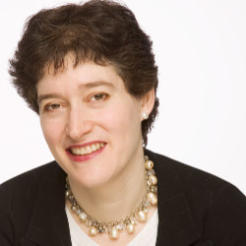Too many charities fail to consider their beneficiaries when choosing where to invest their assets, according to Tanya Pein, co-chair of the Ethical Investment Association.
Speaking yesterday at a Charity Finance Group conference on ethical investment, Pein said: “Very often, the beneficiaries are missing from the table in a physical sense and also from our mindset.
"An integral part of ethical investment is always keeping them in mind when you are interviewing fund managers, when you are thinking about that strategic asset management and when you are considering how much risk you need to take.”
According to Pein, not-for-profit organisations need to be better at evolving with the external environment - which includes the need to regularly overhaul investment policies rather than relying on inherited or revisited strategies.
Making the move towards ethical investment involves uniting the charity’s mission with the investment portfolio, she said.
“At the moment we have a bizarre situation where some charity execs are coming to me and saying we are doing some excellent work on this side but actually our investment committee is investing in fracking or they are investing in companies that are not paying the living wage and we are a poverty relief charity.
“There are conflicts going on – and rather than asking the question, 'why should we do ethical investment?', let’s ask the question, 'how far should we stretch ethical investment?' The big question is why are we doing something that actually could hurt the beneficiaries or could hurt future generations?”
Pein, an independent financial adviser, said she takes inspiration from a North American tribe whose legal framework requires deliberations to consider the effect on the next seven generations.
“It’s actually thinking about intergenerational equity, not just from the point of the permanent endowment capital but thinking about it in the sense that we have finite resources because we have no planet B. So we have to think about how the decisions we are making as an investment committee today affect those who have not yet been born.”









